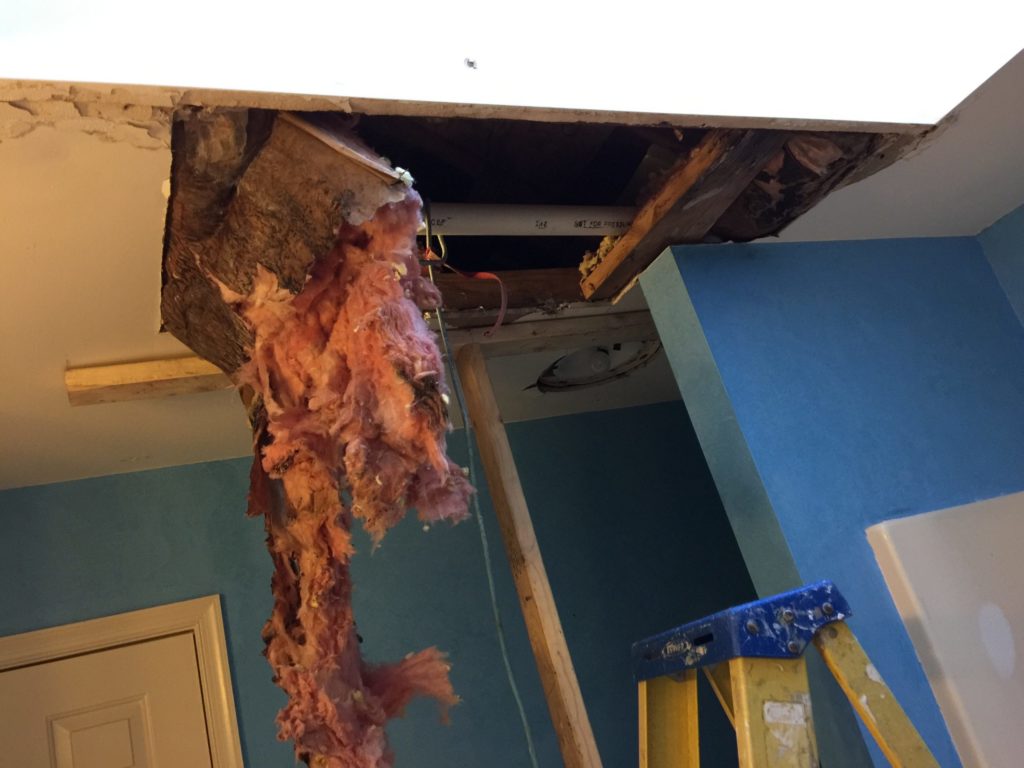
Staying in Your Maryland Home During Mold Remediation
Your home is your sanctuary but sometimes problems come up that not only require professional services but that you possibly leave your home (temporarily). Although the process can be uncomfortable and inconvenient, the longer-term effects can be much worse if you don’t make the adjustments and find somewhere else to stay while your home gets treated for mold.
In this article, we’ll outline what the mold remediation process entails, when mold is dangerous, factors to consider in deciding when to stay or leave, and some basic mold safety and prevention tips.
- What is mold remediation?
- What makes mold dangerous
- Staying in your home during remediation
- Key factors to consider
- Safety and prevention
What is mold remediation?
Mold remediation is the process of cleaning, removing, and sanitizing mold. This process takes on various forms and procedures aimed to protect both a home’s structural integrity and the health and safety of its inhabitants.
Remediation projects begin with a detailed inspection to determine the cause of mold and scope of the remediation project. After initial inspection, a mold remediation technician recommends the best course of action which can involve containment of the affected areas, air filtration through negative air, sanitization and cleaning, and replacing porous materials such as drywall and flooring.
What makes mold dangerous
Typically, you won’t realize your home is suffering from a mold outbreak. As you breathe in mold spores from your HVAC system, your health begins to change, and you might experience dizziness, shortness of breath, or fatigue. Such symptoms point to a problematic amount of mold growth and an emerging health issue on your hands.
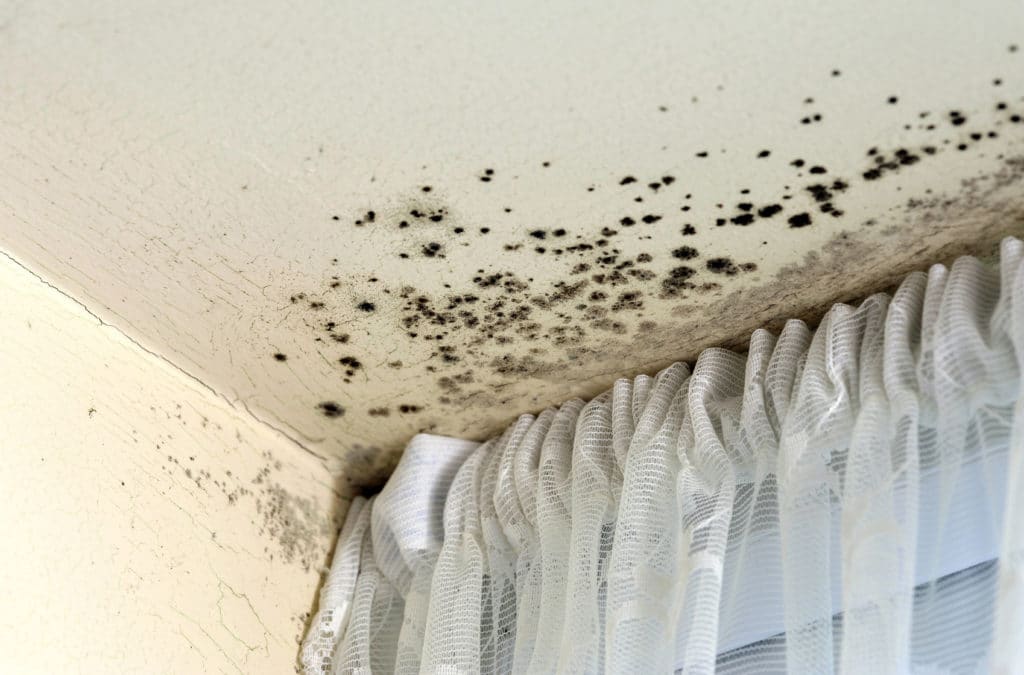
It’s best to get mold growth under control as soon as possible. The longer you wait, the bigger your mold problem will become. Unattended mold can cause serious long-term health issues for you and your family (including your beloved pets) and slowly consume building materials permanently damaging your home.
Staying in your home during remediation
Most mold removal and remediation companies recommend you leave your property, especially if multiple rooms and hallways are affected. Finding alternative housing is also highly recommended if you have small children, elderly, or immunocompromised family members living with you.
On average, with a crew of workers, a mold remediation job can take 5-7 days.
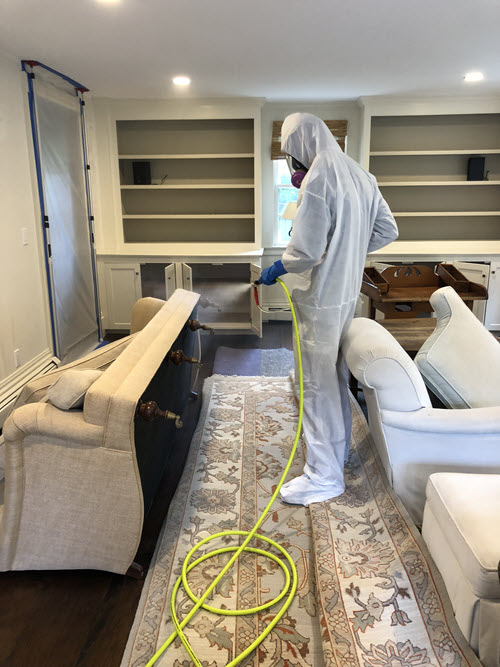
Sometimes it’s not necessary or possible to leave your home during a remediation. Certain areas being treated may not be as busy with the remediation process. So instead, avoid these areas until the process is completed.
Key factors to consider
If you decide to stay home, here are several factors to consider:
HVAC system
If your HVAC system requires remediation and must be shut down, you’ll need to determine livable temperature conditions. Your home can become easily become a sauna without any air conditioning. The remediation contractor might also require additional dehumidification which can also further increase the temperature in your home!
Noise
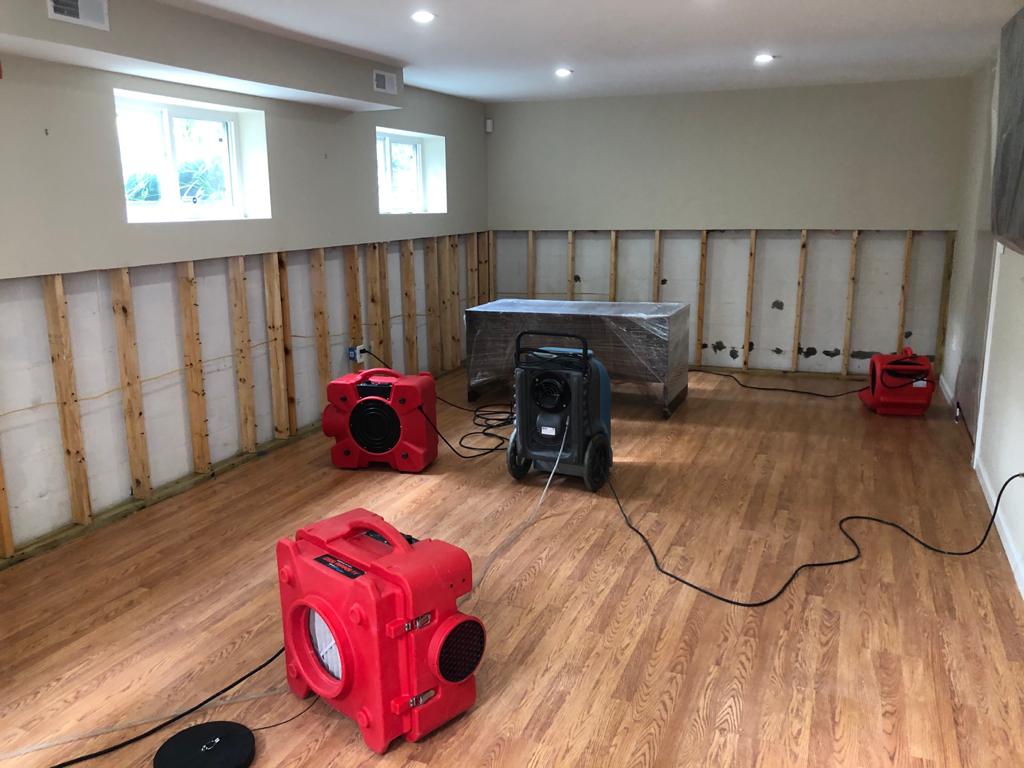
There will likely be 1-2 negative air machines running 24 hours a day. This possibly includes a dehumidifier and a couple of fans to stir the air in the affected areas.
If “white noise” bothers you, consider relocating during the 3-4+ days the mold removal requires. A little noise irritation for a few days is a much smaller price to pay than the irritation and problems from mold sensitivities returning because you turned the machines off when the contractor(s) left for the day.
Extent of remediation work required
A small area can be cleaned up quickly, but a larger project can go on for much longer.
Some of your belongings might need to be relocated to other parts of your home or packed in an outside storage location. Can you make do without some of the contents that need to be relocated?
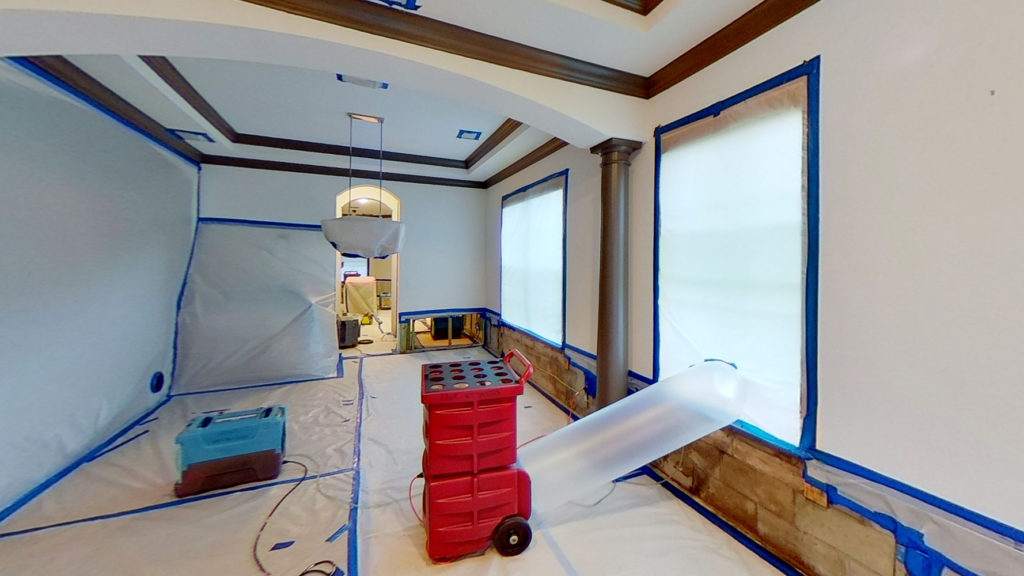
Picture everyone having to sleep on the living room sofa or in sleeping bags if several bedrooms are being treated. How “cool” will this situation be if it goes on for a week or longer?
Also, check with your insurance agent. You might be eligible for a reimbursement if you have to relocate to a hotel or apartment while remediation and repairs are taking place.
Mold sensitivity and health complications
Simply waving your hand near a mold colony can create enough air movement to disturb mold spores. The health effects of mold exposure are most severe for young children, the elderly and immunocompromised. It’s also possible for those sensitive to mold outside the immediate work zone, to be negatively impacted by an accidental release of containment.
Chemicals used during remediation
Every mold remediation requires a different approach. The method used to remediate mold can be the deciding factor in whether you and your family stay in your home during the removal and cleaning process.
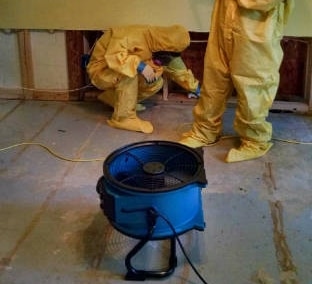
For example, a contractor might use blasting to remove mold from structural components. The blasting media used could be dry ice, soda, or ground up walnut shells. Is anyone in your home sensitive to these items? Another mold expert might use hydrogen peroxide solutions that are dangerous to breathe in without specialized respirators.
Mold remediation involves the use of many different chemicals and sophisticated equipment. At times the affected area(s) will need to be sprayed with these chemicals which can are not safe and can remain airborne.
Reconstruction and repair
Dust, noise, and workers moving in and out of your home during remodeling is also a consideration. Will the remodeling work be slowed down by you and your family being around the house?
Dust and debris
The mold remediation process involves cleaning procedures that lead to a lot of dust (often a mixture of toxic substances) and mold. Removing drywall and other materials can also leave behind a lot of debris.
Safety and prevention
Mold prevention must be done daily. The most important step is keeping your home’s humidity levels low, especially during hot, humid summer days. Wet areas like your bathroom after a shower, should be thoroughly dried right away. Also, consider ways to improve your home’s ventilation.
If you have any toilet, shower, or sink leaks, have these repaired right away to keep mold at bay. Remember, mold thrives in moist environments.
Don’t take unnecessary risks
We hope you’ve found this article useful in better understanding the risks associated with staying home during mold remediation. If all signs point to staying home because there are zero health risks, do so. But if you have any concerns at all or family members with mold sensitivities or weaker immune systems (small children, elderly), don’t put them or yourself at risk. Make the arrangements to stay somewhere else while the professionals treat your home. Your family and home will be better off down the road.
Why MoldGone
At MoldGone, we offer FREE mold inspection. Our mold removal and mold remediation services are available at reasonable prices.
Call us today at 240-970-6533 or Click here to schedule your appointment.



Recent Comments